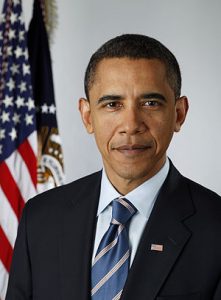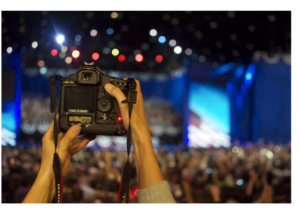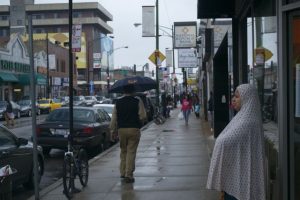As ballots are counted in Illinois’ North Shore precincts, the closely watched 10th congressional race between Republican incumbent Robert Dold and Democratic challenger Brad Schneider may come down to who’s the better nonpartisan businessman – at least that’s what Dold’s hoping.

Dold, a self-identified middleman from Kenilworth, and Schneider, a consultant from Deerfield, both touted their business experience during their final debate Oct. 23 that aired on WTTW.

At the debate, Schneider, 51, said he’s had 25 years of business experience. He’s owned and operated Cadence Consulting Group LLC, a business consulting company, since 2008.
Dold, 43, who runs his family’s pest control business that’s one of the oldest in the country, Rose Pest Solutions, jumped on Schneider’s career during the debate, saying that his consulting company has not had any clients or revenue since 2010, a theme that’s played out in TV attack ads against Schneider.
And unlike Schneider, Dold has released years of his tax returns, making him a champion of transparency, according to the Chicago Tribune’s endorsement of the Republican incumbent.
The first-term congressman told Rick Kogan on WBEZ’s Afternoon Shift on Oct. 25 that his pest control business employs 100 people, and that’s a role and responsibility he takes very seriously.
“Meeting a budget and a payroll, signing the front of a paycheck, I think is important also in terms of the way you can look at what’s going on in Washington,” he told Kogan, adding that his experience makes him the stronger candidate.
In a separate interview with Schneider on the same day, Kogan asked the Democrat if it’s bothersome that he’s getting “beaten up” about his business background.
The Schneider campaign has been quite about specific financial details, and the campaign would not give the Highland Park Patch much information on the candidate’s business success, according to its Oct. 29 article.
Schneider said on the Afternoon Shift that he’s more frustrated by the “refusal” of the other side to have a debate about the “issues that people really care about that affect their everyday lives.”
For example, he said the two candidates should talk about how to get a jobs bill through Congress. He didn’t elaborate on key provisions of such a bill.
There are nearly 26,000 people unemployed in the 10th District, according to 2012 data pulled from SimplyMap. That’s about 4 percent of the district’s population.
Unemployment hasn’t hit the 10th District like some other places in Illinois, however.
The 1st District that covers the South Side of Chicago and surrounding suburbs has more than 8.7 percent of its population unemployed.
The 10th District includes a large swath of Lake County and the northern portion of Cook County along Lake Michigan. The district has a history of ticket splitting. It’s voted for President Barack Obama but also for Republicans U.S. Sen. Mark Kirk and Dold.
But Schneider has his own approach to win over 10th District voters.
From the start of the campaign, Schneider has criticized the freshman congressman’s voting record.
Dold won the congressional seat, which was previously held by now U.S. Sen. Mark Kirk, in 2010.
Schneider and Dold agree on a handful of issues such as raising the debt ceiling, supporting comprehensive immigration reform including the DREAM Act and protecting a woman’s right to choose. Both men consider themselves environmentalists.
But Dold has also backed rightward-moving policy that doesn’t match his middle-of-the-road rhetoric, Schneider said in an October interview with Progress Illinois.
OpenSecrets lists Dold voting 83 percent of the time with his party. It also ranks him the ninth lowest in party allegiance among the 240 Republican House members, allowing him to say truthfully that he has a record of bipartisanship, popular among voters if not so much his party leadership.
At the candidates’ first face-to-face debate in Lake Forest earlier this month, Dold said he’s broken party lines on issues such as women’s reproductive health, gun control and the environment.
But Schneider has repeatedly attacked Dold’s two votes for the controversial Ryan Budget, which would turn Medicare into a voucher-like program and eliminate Pell Grants for up to one million students, among other cost-reducing actions.
The Democratic challenger is counting on voters to look at Dold’s voting background.
Steve Sheffey, 52, who identified himself as a political activist in Highland Park, said a key issue that made his vote for Schneider is equal rights for gays and lesbians.
Dold isn’t right for the 10th District, Sheffey said, because unlike Schneider he opposes marriage equality and the Employment Non-Discrimination Act that would prohibit workplace discrimination based on sexual orientation.
“How can anyone represent this district and be against marriage equality?” Sheffey said in remarks after the Lake Forest debate Oct. 14. “That’s a basic human right. It’s a fundamental right, and he’s against that in the 21st century.”
Rami Rakheram, 48, a Waukegan resident, said after the Lake Forest debate that he would vote for Dold.
“I heard him as someone who’s putting the country, the economy and the people in front of the office of politics,” Rakheram said.
Like other competitive congressional races in Illinois, including the 11th and 8th Districts, this contest isn’t cheap.
Dold has brought in nearly $4 million, with about $1.2 million coming from Super PACs, according to OpenSecrets data as recent as Sept. 30.
It’s not clear if Dold’s large pot of money puts him ahead of Schneider. Two recent polls taken earlier this month show different results.
An Oct. 12 Dold campaign poll of 400 likely voters shows Dold with a 10-point lead, according to an Oct. 16 article in the Deerfield Patch.
But a digitized poll of 451 registered voters on Oct. 14 by the Democratic Congressional Campaign Committee points to a statistical tie with Schneider leading by 1 percent.
















Be First to Comment